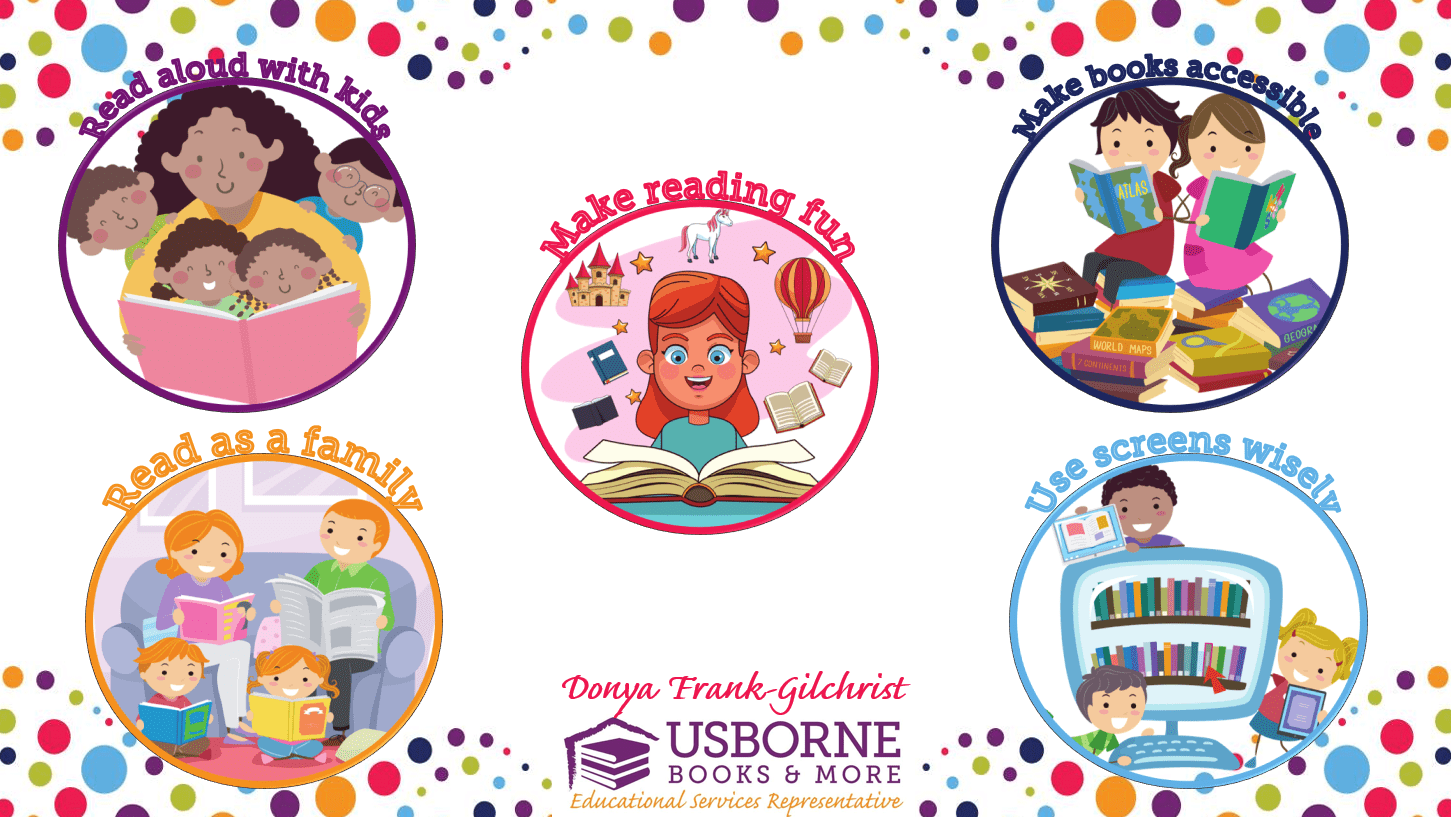 Now that the holidays are over, it is time for back to school! Here are five tips to help you keep your child on track for academic success this year. Literacy is very important even in our technology-driven world. Reading is essential in our everyday lives and can open a world of possibilities for our children. Promoting literacy should begin long before your child is of school age. Developing pre-reading skills such as letter pronunciations and picture reading are extremely important for establishing a good foundation for a lifetime of learning. Here are our top 5 tips for promoting literacy in your children from an early age.
Now that the holidays are over, it is time for back to school! Here are five tips to help you keep your child on track for academic success this year. Literacy is very important even in our technology-driven world. Reading is essential in our everyday lives and can open a world of possibilities for our children. Promoting literacy should begin long before your child is of school age. Developing pre-reading skills such as letter pronunciations and picture reading are extremely important for establishing a good foundation for a lifetime of learning. Here are our top 5 tips for promoting literacy in your children from an early age.
1. Read aloud with your children
Did you know that one of baby’s first senses to develop in the womb is the sense of hearing? Babies can hear sounds starting at about 18 weeks (Mayo Clinic, 2017). So, go ahead, read some fun stories, and start bonding with your baby before he/she is even born! Reading interest drops significantly as children grow, possibly because most parents stop reading aloud to their children as they become more advanced readers. In fact, 40% of children aged 6-11 wished that their parents still read to them (Scholastic, 2015). Reading together is still enjoyable and many parents are missing this opportunity for continued growth in their relationship with their children. One idea to keep reading interactive may be for parent and child to take turns voicing different characters in a book.
2. Make books accessible
Have books everywhere! Having a dedicated home library with a cozy reading corner may be lovely. However, it could be more beneficial if books were easily accessed in all areas of the home, and not just kept in an isolated room where they may rarely get used. To encourage your children to read, always keep books within easy reach. You may keep books on a small bookshelf in their bedroom, in a basket in the bathroom, next to the board games in the family room, on a shelf next to the dining table, and even in the pockets of your car seats. If your child cannot read yet, find some phonics books that come with audio narration so your child can learn new words independently.
3. Make reading fun
If a person does not enjoy doing something, it will become a bore or a chore! Parents should try to encourage reading for fun, separate from academic assignments. Use this time to explore new topics of interest with your children. You could find fun books based on your children’s favorite toys or tv shows. Fun, interactive books with beautiful illustrations will keep young children engaged. You could find books that come with an affiliated toy, a fun activity, or an educational animation. Get creative with bedtime stories and have your child re-tell the story to you in their own words. It could help to build their vocabulary, enhance reading comprehension, and boost their imagination! Reading stories with a moral lesson can also help to build good character.
4. Form a habit of reading
Children live what they learn. If parents are always on their phones and computers, or always watching tv, then children will pattern those behaviors. Consider forming a family habit of reading by setting aside some time each week to read together. You may form a book club where each person shares their book of the week with the rest of the family to enhance your reading sessions together. Be a reading role model for your children and demonstrate how much fun reading can be. Eventually, you will not even have to ask them to read. Once you pick up a book, they will automatically do the same!
5. Use screen time wisely
Our children live in a much more technologically advanced world than we did growing up. Screen time can be great when used in moderation. Many educational applications and television programs are great supplements to any academic curriculum. And frankly, sometimes a little screen time may be necessary for parents to get a mental health break! However, if we want to set our children up for success, we should use technology in conjunction with reading because literacy skills will be essential for any path they choose.
These 5 literacy tips are certainly not comprehensive, and we recognize that there are many other ways in which you can enhance literacy for your children. Please feel free to share other methods that have worked for you. We wish for you and your family a wonderful and successful 2021!
Today a reader,
Tomorrow a leader!
~Margaret Fuller
 Sources:
Sources:
Mayo Clinic Staff. (2017). Fetal development: The second trimester.
Rose Simons. (2015). Scholastic 2015 Kids and Family Reading Report.
About the Authors
Dr. Donya Frank-Gilchrist
 Donya Frank-Gilchrist, Ph. D. is an Oceanographer and a published author with a strong passion for reading. During her childhood, her parents gave her a book about volcanoes which sparked her interest in learning about nature. Now her career is laced with that passion. She enjoys exploring new topics through reading with her 2 young children. Dr. Frank-Gilchrist is very excited to promote literacy to a broader audience as an Educational Services Representative with Usborne Books & More Educational Services. Their fun, interactive, educational books keep children engaged and fuel their passion for learning. Please contact her at [email protected] to receive personalized recommendations for your readers and browse their amazing collection at www.booksmadefun.com.
Donya Frank-Gilchrist, Ph. D. is an Oceanographer and a published author with a strong passion for reading. During her childhood, her parents gave her a book about volcanoes which sparked her interest in learning about nature. Now her career is laced with that passion. She enjoys exploring new topics through reading with her 2 young children. Dr. Frank-Gilchrist is very excited to promote literacy to a broader audience as an Educational Services Representative with Usborne Books & More Educational Services. Their fun, interactive, educational books keep children engaged and fuel their passion for learning. Please contact her at [email protected] to receive personalized recommendations for your readers and browse their amazing collection at www.booksmadefun.com.
Mrs. Mary Frank
 Mrs. Mary Frank, M. Ed. is an award-winning educator with over 41 years of experience teaching at public high schools. In addition to being a Spanish teacher, she has served in several administrative capacities including Grade Supervisor, Head of Department for Modern Languages, Vice Principal and Acting Principal. She is now retired and enjoys promoting literacy, spending time with her grandchildren, and engaging in various community service activities.
Mrs. Mary Frank, M. Ed. is an award-winning educator with over 41 years of experience teaching at public high schools. In addition to being a Spanish teacher, she has served in several administrative capacities including Grade Supervisor, Head of Department for Modern Languages, Vice Principal and Acting Principal. She is now retired and enjoys promoting literacy, spending time with her grandchildren, and engaging in various community service activities.















